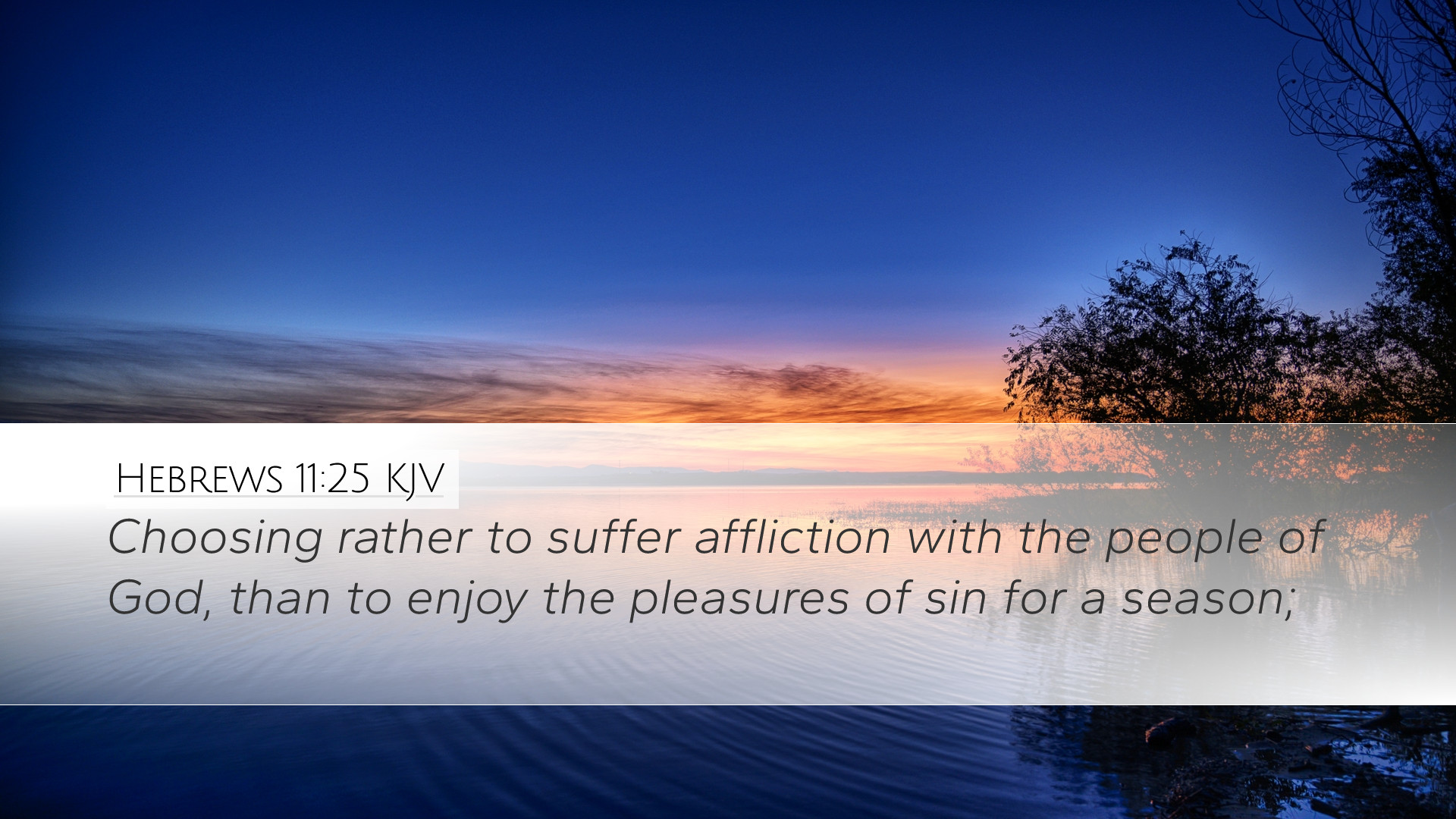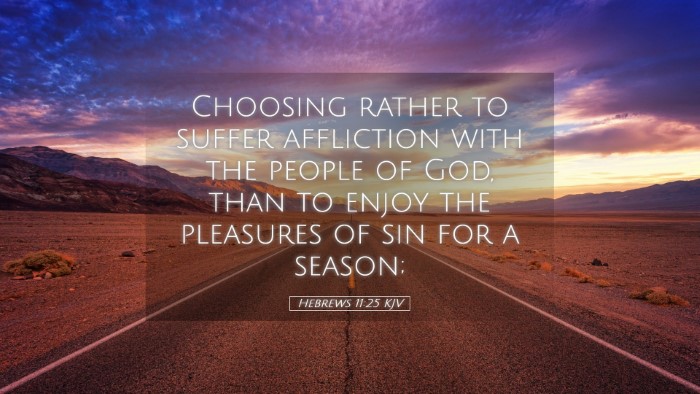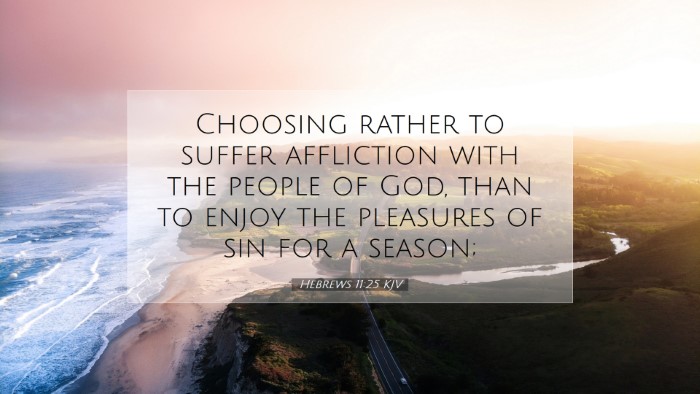Commentary on Hebrews 11:25
Text of the Verse: "Choosing rather to suffer affliction with the people of God than to enjoy the pleasures of sin for a season."
Introduction
The verse from Hebrews 11:25 presents a profound contrast between the transient pleasures of sin and the enduring sufferings that align one with the people of God. It encapsulates a pivotal moment in the life of Moses, illustrating the choices that define one's spiritual journey. This commentary synthesizes insights from well-regarded public domain sources, providing a comprehensive understanding suitable for pastors, students, theologians, and scholars.
Moses' Choice
Matthew Henry's Insight: Henry emphasizes the greatness of Moses' faith manifested in his decisive choice. He notes that Moses, a Hebrew raised in the Egyptian royal court, had access to all worldly pleasures and privileges. Choosing to suffer with God’s people rather than enjoy the fleeting pleasures of sin signifies a profound commitment to God's covenant and His people.
Albert Barnes' Commentary: Barnes elaborates on the implications of Moses' choice. He asserts that this decision illustrates the true nature of faith, which prioritizes spiritual over earthly gain. Moses’ choice serves as a model for believers, signifying that true fulfillment cannot be found in earthly pleasures, which are momentary and ultimately lead to spiritual decay.
The Nature of Sin
Sin is depicted as pleasurable but only temporarily; Moses understood that any enjoyment derived from sin is fleeting. Adam Clarke's Perspective: Clarke affirms that sin may seem attractive, yet its consequences are dire. He argues that the allure of sin stands in stark contrast to the trials that accompany fidelity to God, which yield spiritual reward and deepen one's relationship with Him.
- Clarke’s analysis of 'pleasures of sin': He reflects that these pleasures are deceptive, offering satisfaction that quickly dissipates, leading to a cycle of disappointment.
- Spiritual Implications: This highlights the need for believers to seek lasting joy through righteousness, understanding that what is often perceived as beneficial may ultimately lead to spiritual death.
Affliction with the People of God
The choice to suffer with the people of God implies a solidarity that transcends personal desire for comfort or status. Matthew Henry identifies this: By choosing communal suffering, Moses exemplifies the call toward unity within the body of believers. It challenges the individualistic mindset prevalent in contemporary culture.
Barnes further explains: The choice to align with God's people suggests a deeper allegiance to divine principles and values, recognizing the eternal significance of living in harmony with God's purposes, even amidst adversity.
Lessons for Today’s Believers
The insights from Hebrews 11:25 compel believers to reflect on their choices and values. It poses critical questions:
- What sacrifices might you need to make to better align with God’s purpose for your life?
- Are there areas where you find yourself choosing temporary pleasures over enduring commitments to faith and community?
Adam Clarke's Encouragement: Clarke encourages believers to recognize that the afflictions associated with following Christ are not only inevitable but also form the basis for spiritual growth and deeper reliance on God.
Conclusion
Hebrews 11:25 calls each believer to weigh the value of their choices in light of their faith. Moses stands as an exemplary figure, whose decision to embrace suffering for a greater cause offers a paradigm through which one can assess earthly versus spiritual riches. By reflecting on this verse, believers are reminded that although the path of faith may be fraught with challenges, it ultimately leads to greater faithfulness and an enduring legacy in God’s kingdom.


